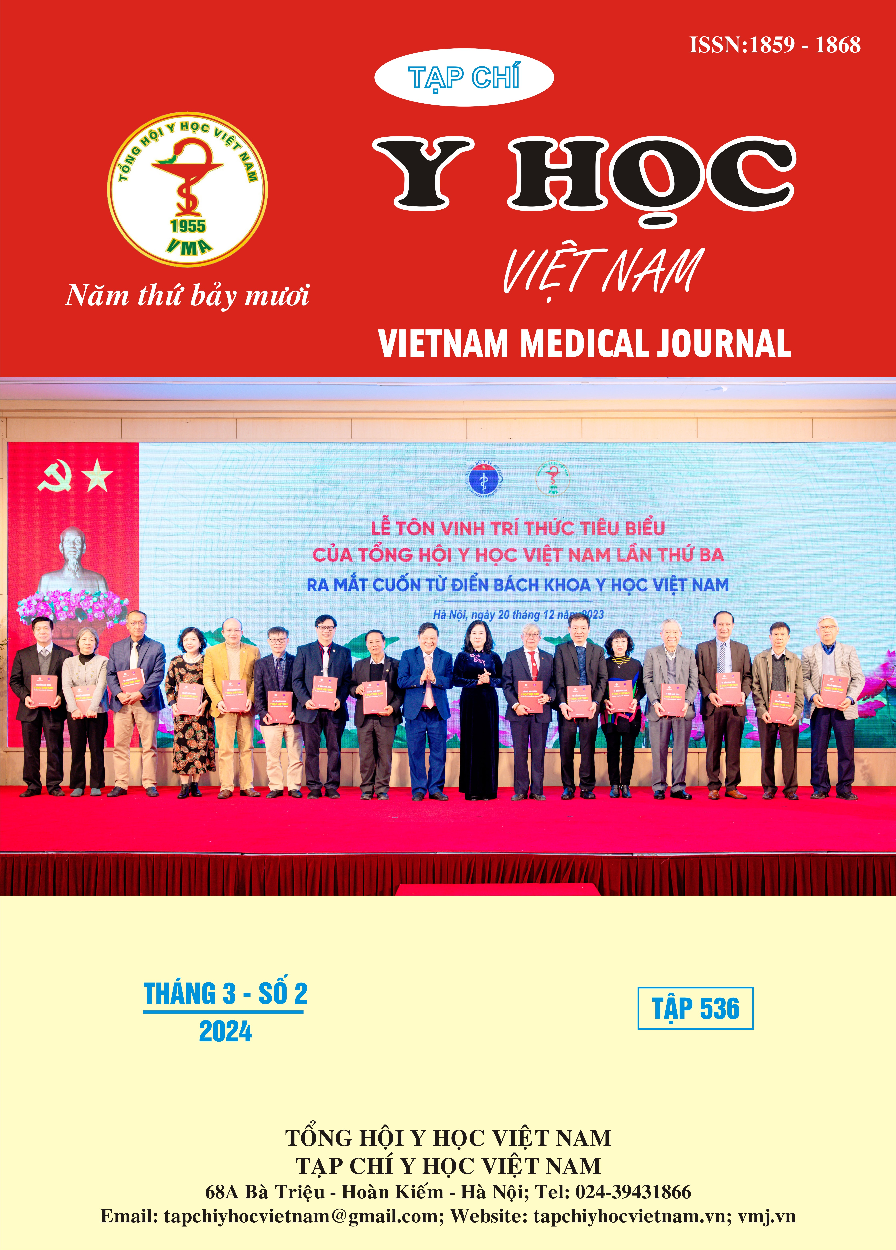CHANGES IN BLOOD GLUCOSE CONCENTRATION AFTER CONGENITAL OPEN HEART SURGERY AT NATIONAL HOSPITAL PEDIATRIC
Main Article Content
Abstract
Introduction: Hyperglycemia after open heart surgery in children is very common, and associated with the occurrence of adverse outcomes. Assessing postoperative blood glucose disorders to support treatment and prognosis is very necessary. Objectives: Survey on changes in blood glucose levels in children with congenital heart disease having open heart surgery at the National Children's Hospital. Patients and Methods: Cross-sectional descriptive prospective study. All patients after open heart surgery are treated at the Surgical Cardiac Intensive Care Unit of the National Children's Hospital. Evaluate blood glucose through arterial blood gas samples taken at the prescribed time and run the sample right at the time of collection using the Gem 3500 machine. Results: There were 300 patients in the study, with 2400 blood glucose samples collected from hourly arterial blood gas testing. There were 259 patients with hyperglycemia, accounting for 86.3%. Blood Glucose levels increased during the first 6 hours after surgery, gradually decreased from 12 to 24 hours and maintained a stable level from 48 hours after surgery. Blood glucose increased higher in the first 12 hours in the following groups: weight less than 5 kg, age at surgery less than 6 months. Conclusions: Blood Glucose levels increased during the first 6 hours after surgery, gradually decreased from 12 to 24 hours and maintained a stable level from 48 hours after surgery.
Article Details
References
2. Michael S. D. Agus et al. (2014), "Tight glycemic control after pediatric cardiac surgery in high-risk patient populations: a secondary analysis of the safe pediatric euglycemia after cardiac surgery trial", Circulation. 129(22), pp. 2297-2304.
3. F. Alaei et al. (2012), "Postoperative outcome for hyperglycemic pediatric cardiac surgery patients", Pediatr Cardiol. 33(1), pp. 21-6.
4. W. M. DeCampli et al. (2010), "Perioperative hyperglycemia: effect on outcome after infant congenital heart surgery", Ann Thorac Surg. 89(1), pp. 181-5.
5. E. S. Moghissi et al. (2009), "American Association of Clinical Endocrinologists and American Diabetes Association consensus statement on inpatient glycemic control", Diabetes Care. 32(6), pp. 1119-31.
6. Dirk Vlasselaers et al. (2010), "Tight glycemic control protects the myocardium and reduces inflammation in neonatal heart surgery", The Annals of thoracic surgery. 90(1), pp. 22-29.
7. Dirk Vlasselaers et al. (2009), "Intensive insulin therapy for patients in paediatric intensive care: a prospective, randomised controlled study", The Lancet. 373(9663), pp. 547-556.
8. Natsuhiro Yamamoto et al. (2018), "Predictors of severe postoperative hyperglycemia after cardiac surgery in infants: a single-center, retrospective, observational study", Journal of anesthesia. 32, pp. 160-166.


